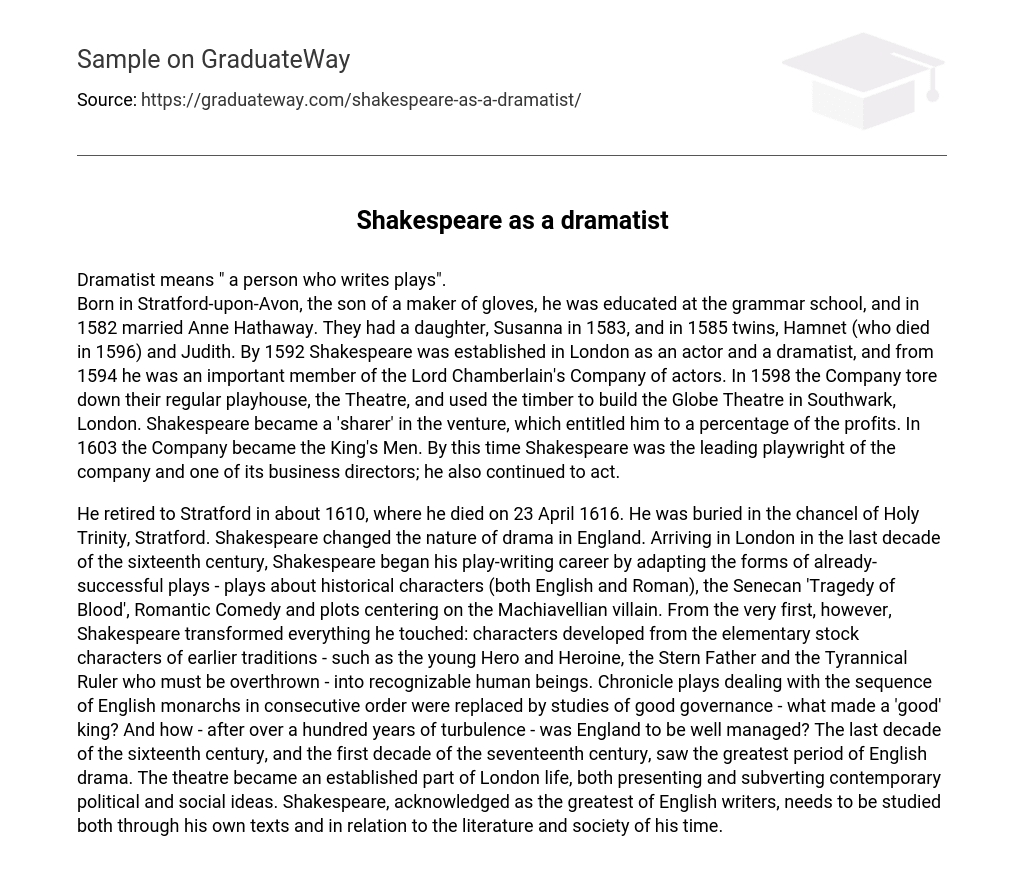Dramatist means ” a person who writes plays”.
Born in Stratford-upon-Avon, the son of a maker of gloves, he was educated at the grammar school, and in 1582 married Anne Hathaway. They had a daughter, Susanna in 1583, and in 1585 twins, Hamnet (who died in 1596) and Judith. By 1592 Shakespeare was established in London as an actor and a dramatist, and from 1594 he was an important member of the Lord Chamberlain’s Company of actors. In 1598 the Company tore down their regular playhouse, the Theatre, and used the timber to build the Globe Theatre in Southwark, London. Shakespeare became a ‘sharer’ in the venture, which entitled him to a percentage of the profits. In 1603 the Company became the King’s Men. By this time Shakespeare was the leading playwright of the company and one of its business directors; he also continued to act.
He retired to Stratford in about 1610, where he died on 23 April 1616. He was buried in the chancel of Holy Trinity, Stratford. Shakespeare changed the nature of drama in England. Arriving in London in the last decade of the sixteenth century, Shakespeare began his play-writing career by adapting the forms of already-successful plays – plays about historical characters (both English and Roman), the Senecan ‘Tragedy of Blood’, Romantic Comedy and plots centering on the Machiavellian villain. From the very first, however, Shakespeare transformed everything he touched: characters developed from the elementary stock characters of earlier traditions – such as the young Hero and Heroine, the Stern Father and the Tyrannical Ruler who must be overthrown – into recognizable human beings. Chronicle plays dealing with the sequence of English monarchs in consecutive order were replaced by studies of good governance – what made a ‘good’ king? And how – after over a hundred years of turbulence – was England to be well managed? The last decade of the sixteenth century, and the first decade of the seventeenth century, saw the greatest period of English drama. The theatre became an established part of London life, both presenting and subverting contemporary political and social ideas. Shakespeare, acknowledged as the greatest of English writers, needs to be studied both through his own texts and in relation to the literature and society of his time.





